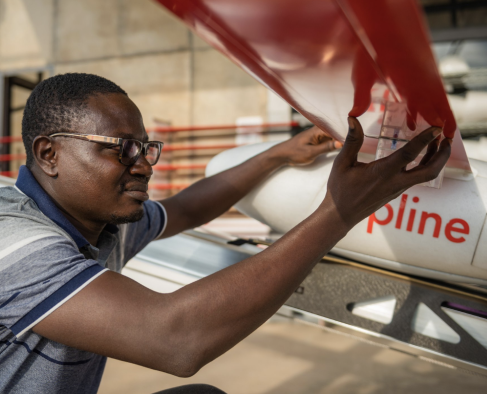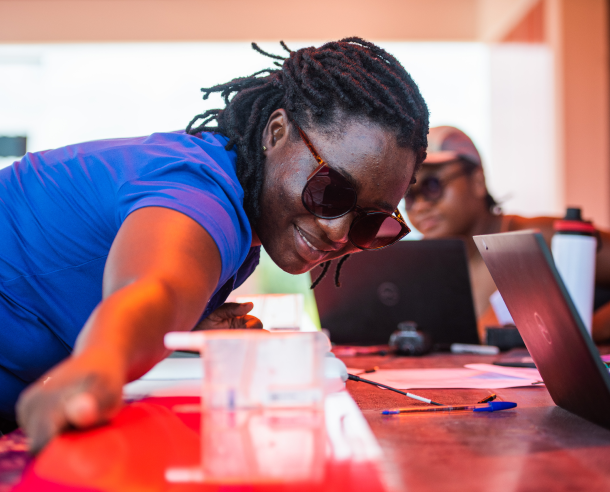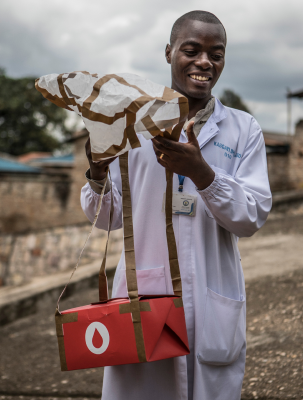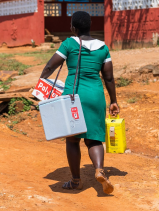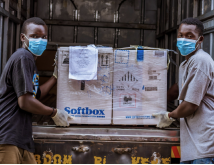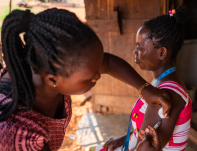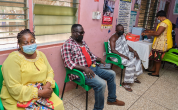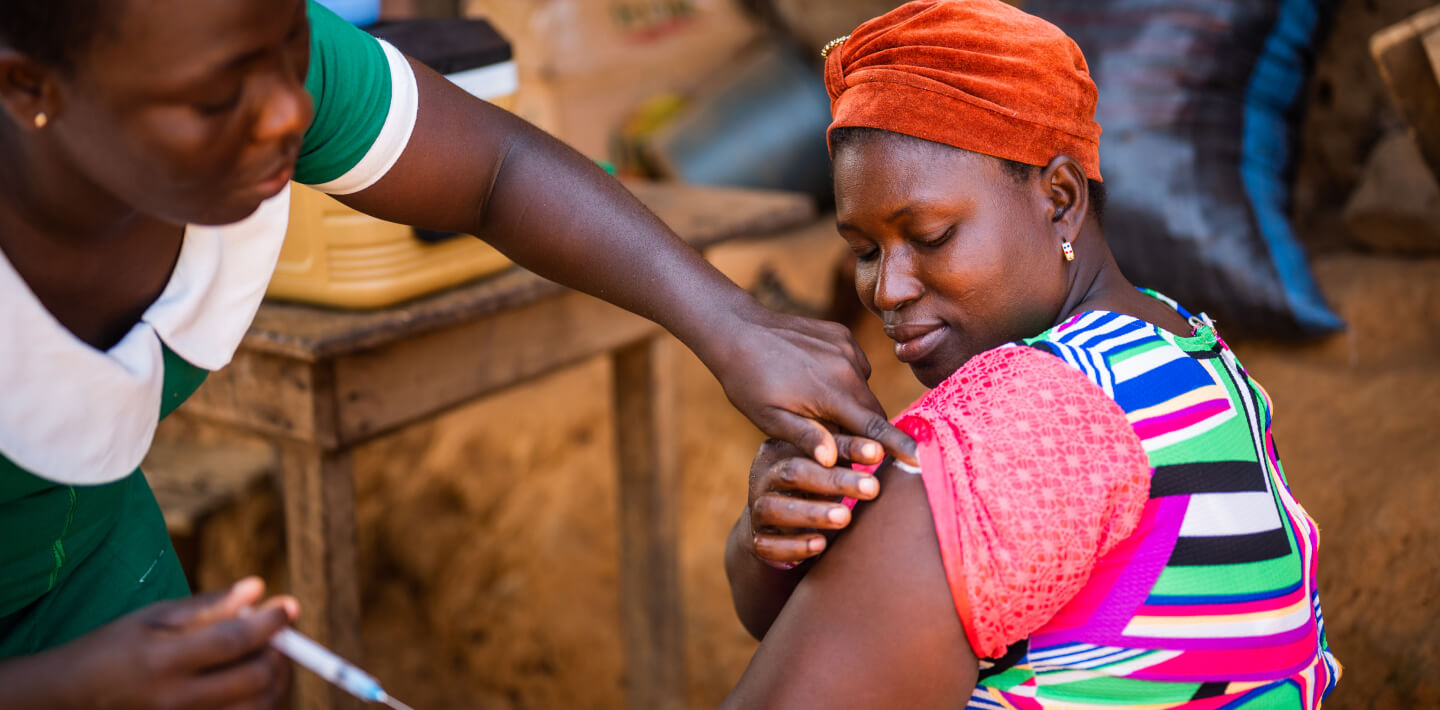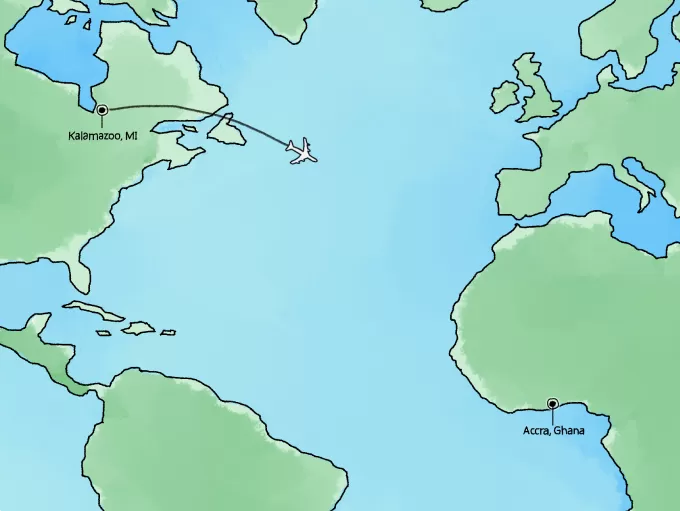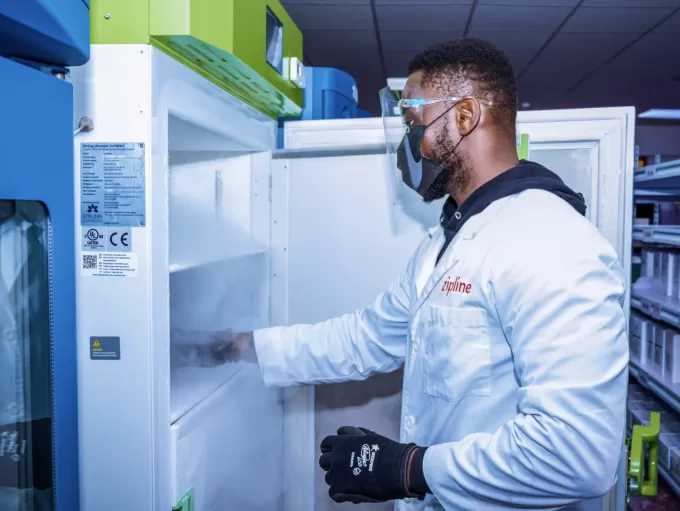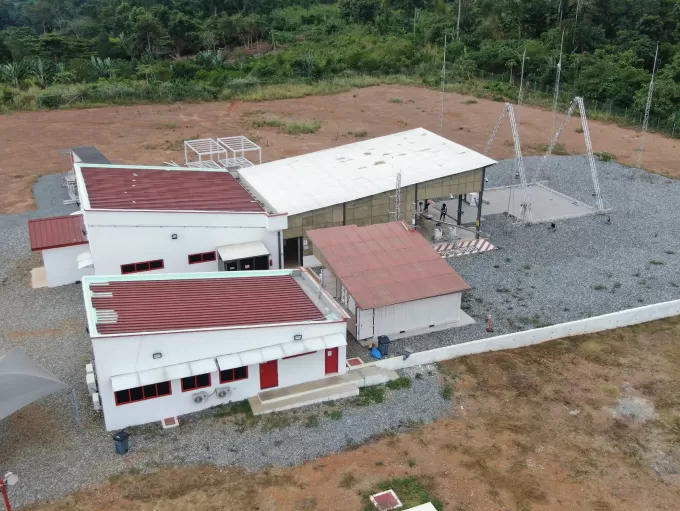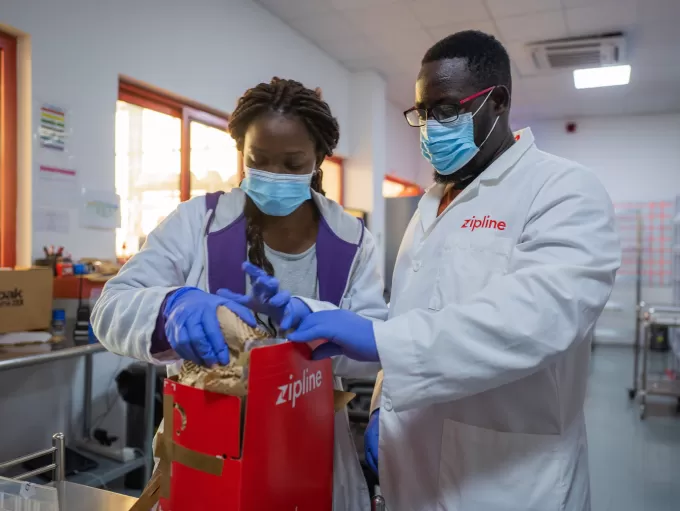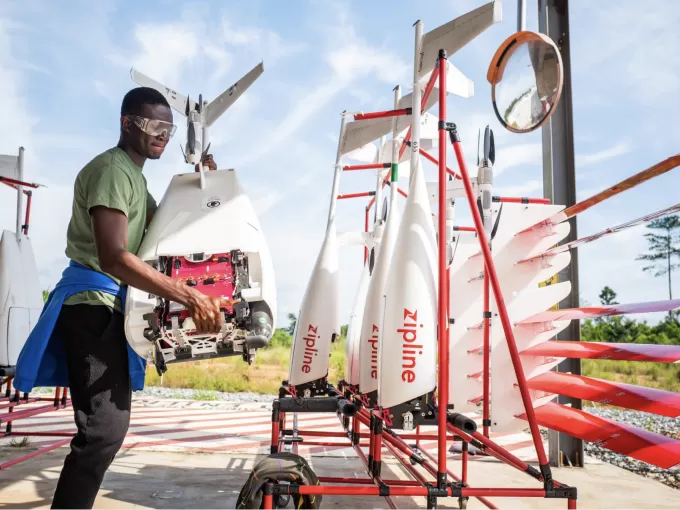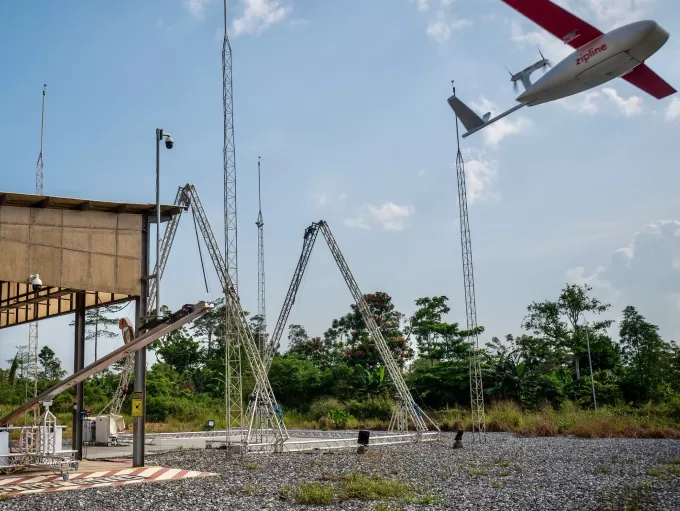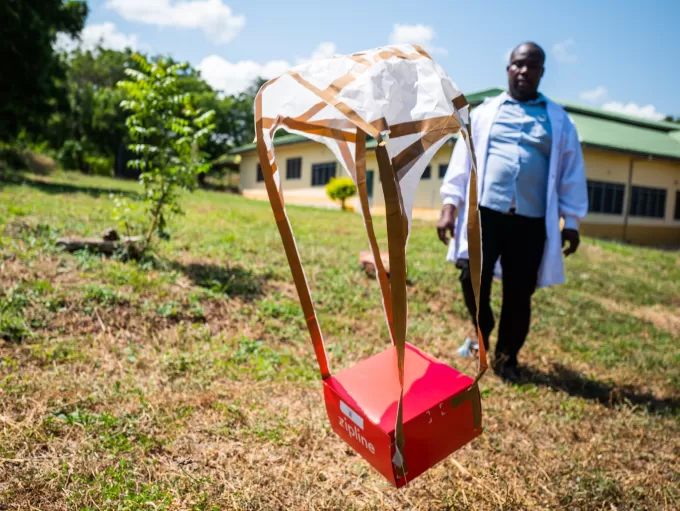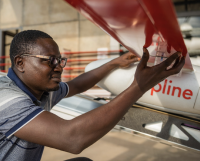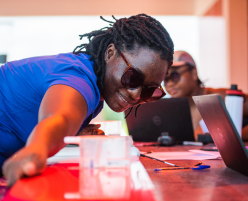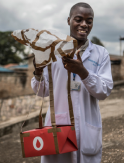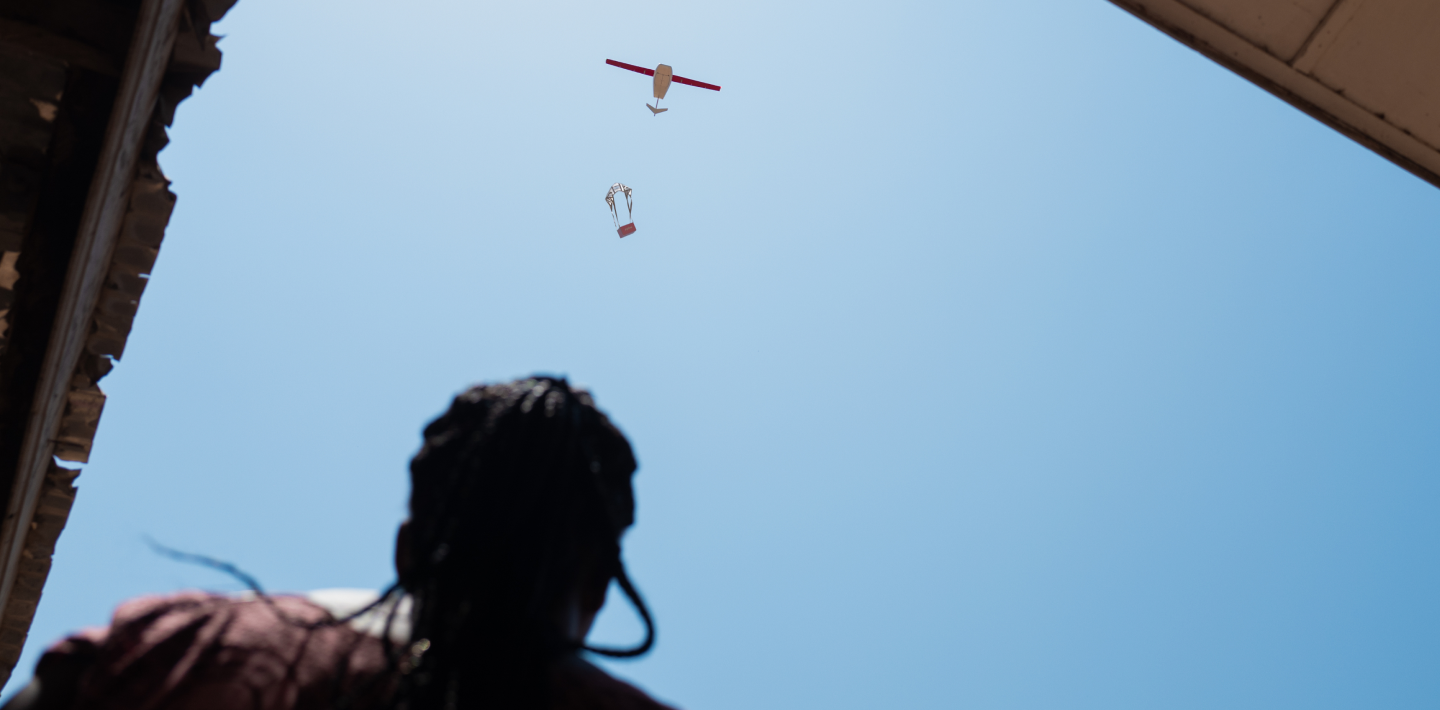
Partnering to Deliver the Pfizer-BioNTech COVID-19 Vaccine to Ghana’s Remote Communities
By Sachi Fujimori | April 2022
Outside a rural health clinic in Ghana’s Ashanti region swathed in dense forests, a small white drone, about the size of a model airplane, drops a red box into a dusty open field.
Inside the thermal packaging are vials of Pfizer’s mRNA COVID-19 vaccine containing the exact number of doses needed to vaccinate the people waiting outside the clinic. A healthcare worker grabs the box and brings it inside. Once the villagers receive their shots, they are grateful to quickly return to work as farmers producing cacao, coffee, and plantains.
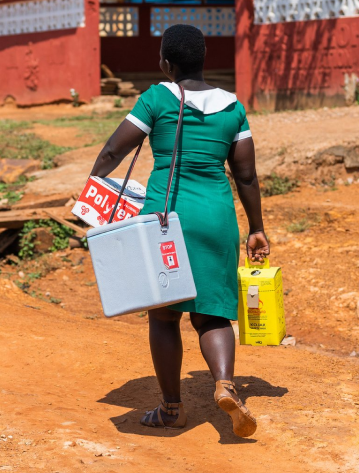
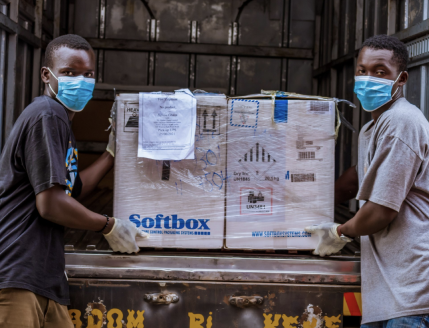
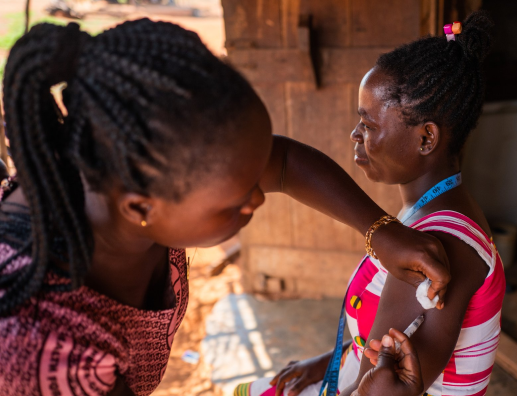
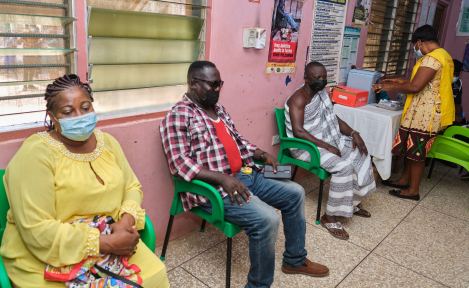
This high-tech, just-in-time vaccine delivery was made possible through Pfizer’s partnership with Zipline, an end-to-end instant logistics company. In the fall of 2021, the partners launched a pioneering drone delivery program in Ghana, shuttling thousands of doses of the Pfizer mRNA vaccine to the hardest-to-reach corners of the country.
Ghana, like many low- and middle-income nations, has long faced challenges in the last-mile delivery of vaccines and medical supplies. Some remote communities are separated by towering mountains and difficult-to-pass lakes and rivers. Adding to the geographic challenges, many areas face a shortage of healthcare workers and the high-tech refrigerators needed to properly store the mRNA vaccine at its required ultracold temperatures.
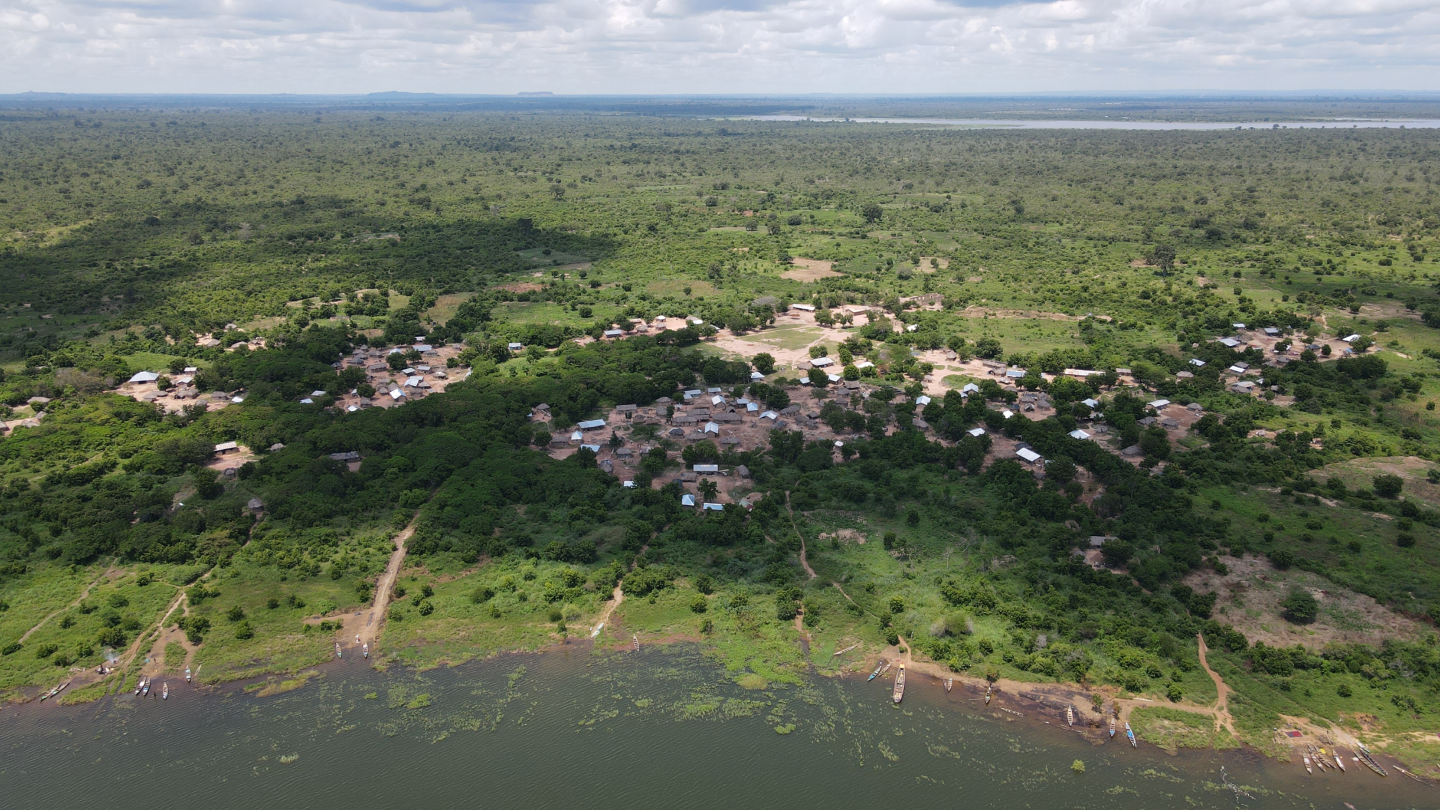

There are remote island clinics where a healthcare worker has to spend a day crossing a river by boat and foot just to pick up vaccines from the mainland. It’s a really big challenge in these areas.
Equity from the outset
In the spring of 2021, months before Pfizer’s COVID-19 vaccine would receive emergency use authorization, Pfizer scientists, engineers, and manufacturing experts were already thinking ahead to last-mile communities like those in Ghana’s rural Ashanti region. They knew that providing access to COVID-19 vaccines to every human on the planet would be challenging, but an absolute necessity.

We’ve had a big focus on equity from the outset. It was a real catalyst for the many different decisions we made at every phase and forced us to think how we can start partnering with organizations to make the most impact.
Prior to the pandemic, Pfizer and Zipline had already collaborated on projects in Ghana providing essential medicines to remote communities. But the pandemic presented an unprecedented test for the partners: Zipline had never delivered a product like the mRNA vaccine with such strict temperature requirements. The partners had to work closely together to ensure that the vaccine could be distributed quickly and safely at global and national scales.
Scaling for drone delivery
Preparing the mRNA vaccine for drone delivery in Ghana was not as simple as “package it up and fly it out.” It required months of extensive planning, testing, and ensuring that strict safety protocols were met.
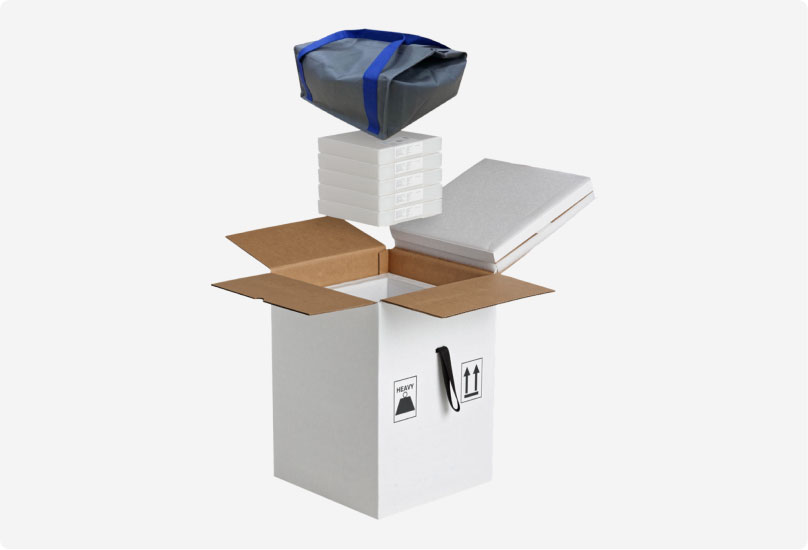
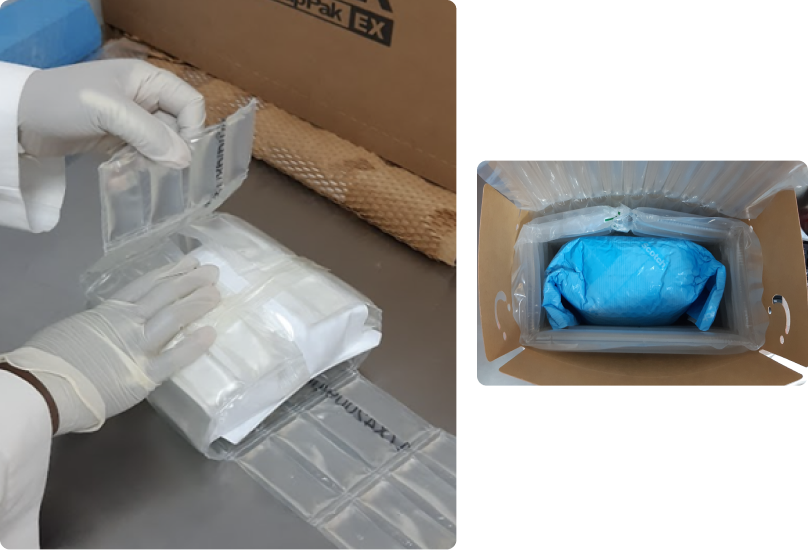
Pfizer worked closely with Zipline to develop a thermal box where the vaccine can be safely transported at 2 to 8 degrees Celsius.
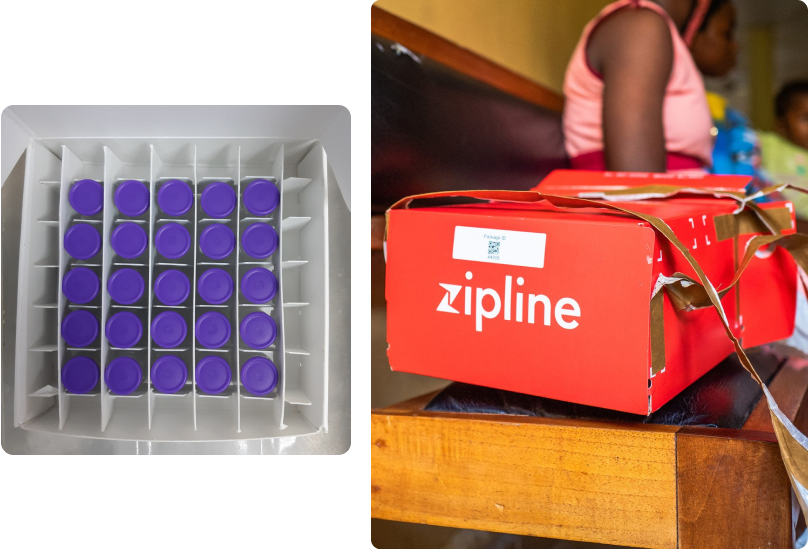
The secondary packaging allows for variability in the number of vaccine orders from health clinics. It can carry between one and 25 vials.
Leading up to the first drone drop, Pfizer and Zipline performed a test run of their entire supply chain from Belgium to last-mile health posts in Ghana. Sharing the results in a white paper, they hope the data and learnings can be leveraged by other vaccine makers and stakeholders.
“Whatever capabilities we developed, it wasn’t something we created exclusively for Pfizer; we wanted it available for any pharmaceutical coming down the pipeline to take advantage of this,” says Jean.
“No dose wasted”
Since the project launched in Ghana last November, Zipline drones have delivered some 150,000 doses of the Pfizer mRNA COVID-19 vaccine.
Here’s how the journey works →
Since most of the facilities lack ultracold storage, the clinic receives just enough product to vaccinate the people present. “When they need more, they’re able to call on us and no dose gets wasted,” says Kwasi Antwi, Health Systems Integration Lead, Zipline Ghana
Many of the people in these communities are accustomed to waiting for hours to receive vaccines, often sacrificing a day of work. But thanks to the efficiency of drone delivery, patients can now show up and receive their vaccines in under 30 minutes.
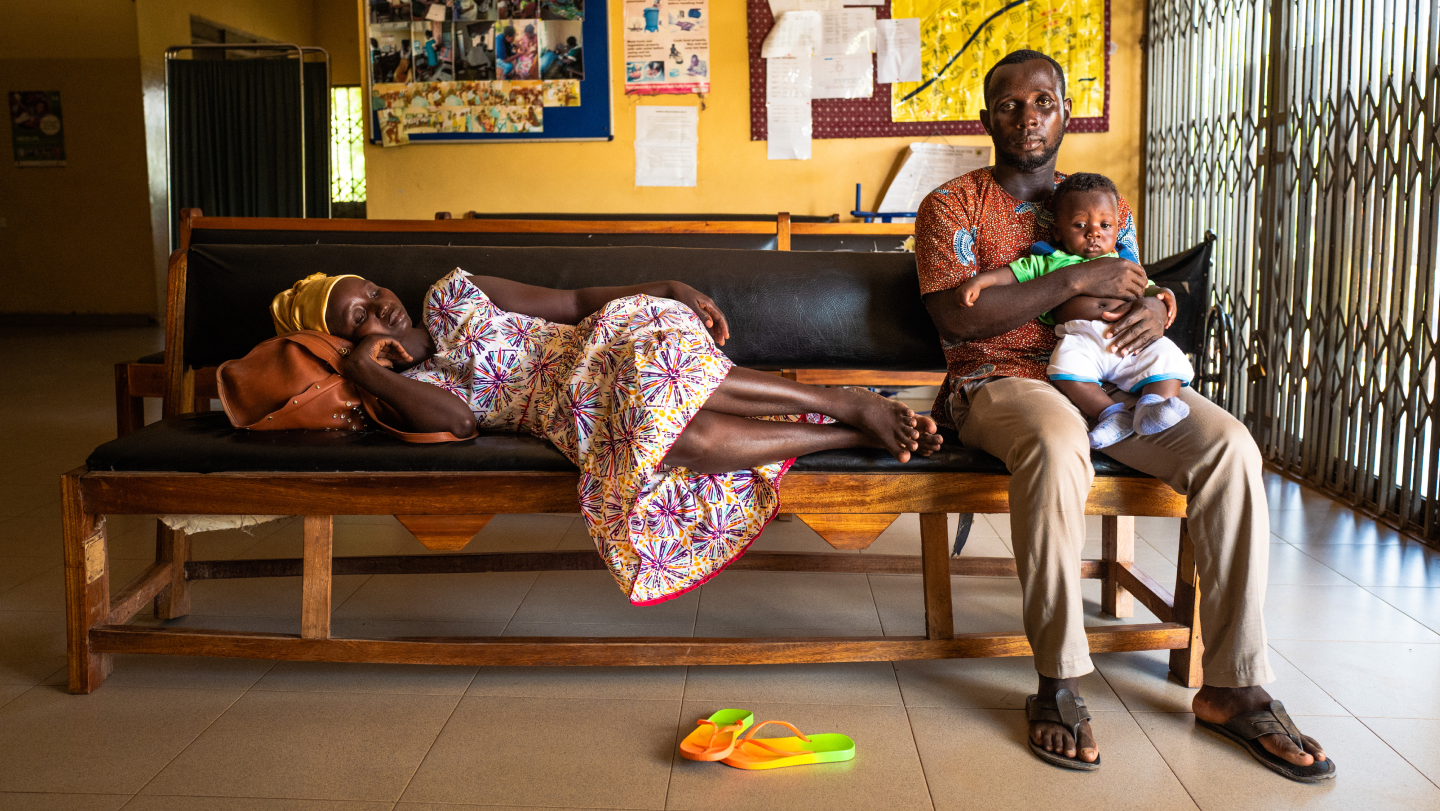

Mothers are very comfortable when they come to our clinics because they know they don’t have to wait for hours. They can receive their vaccines quickly and go back to their farms. It becomes a very efficient way to encourage mothers to come get their vaccines.
Rebuild the health
system of tomorrow
As the pandemic has reinforced, no one entity alone can tackle global health inequities. But Pfizer and Zipline’s partnership underscores how close collaboration and leveraging technology can truly make an impact in bridging the global health gap.

